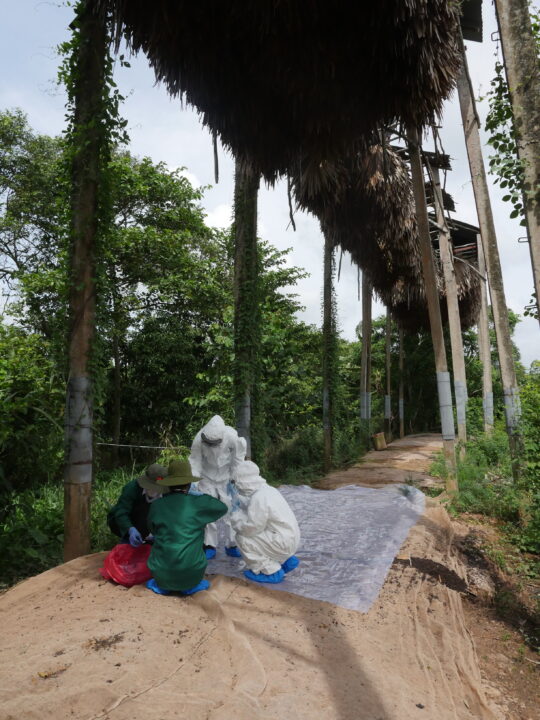A new study led by the Wildlife Conservation Society (WCS) identified a viral hotspot in Viet Nam where bat roosting sites, bat guano harvesting, and pig farms are all in close proximity. The study found significant viral diversity in bats, including CoVs closely related to ancestors of pig pathogens, at the human–animal interfaces targeted, as well as localized viral transmission among pig farms. The study also found possible previous exposure to the Marburg virus, Crimean–Congo hemorrhagic fever virus, and others in human communities living close to a bat cave where bat guano is harvested.

The authors of the study say that the collection of bat guano – commonly used as a fertilizer – if not stopped entirely, should include the use of personal protective equipment for guano harvesters. They also say that the impact of bat guano harvesting on the conservation of bats and the potential disruption of their critical role in the broader ecosystem must be assessed.

The study represents one of the first attempts to implement One Health surveillance in Viet Nam which is located within a region characterized as a global hotspot for emerging infectious diseases. One Health is an integrated, unifying approach that aims to sustainably balance and optimize the health of people, animals, and ecosystems.
The authors of the study point out the need to integrate wildlife expertise into future One Health surveillance planning and expand knowledge of wildlife systems (free range populations of wildlife, wildlife farming operations, and wildlife trade). Wildlife knowledge will be critical in the targeting of surveillance locations, interpretation of surveillance data, and development of interventions needed to prevent novel virus emergence as well as prepare for and respond effectively to the emergence of viruses with pandemic potential.
Images: Wildlife Conservation Society
